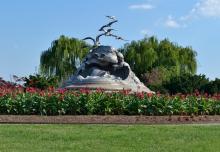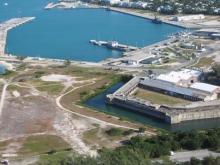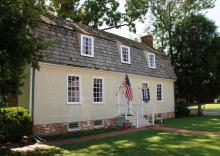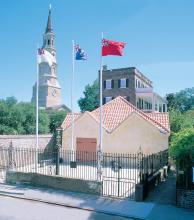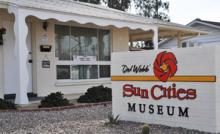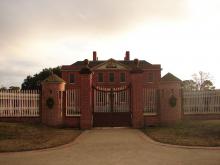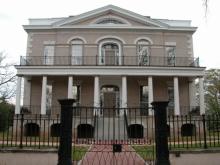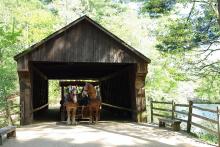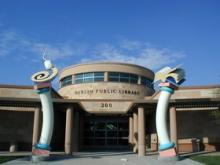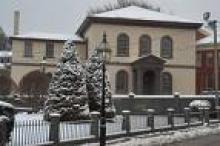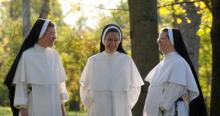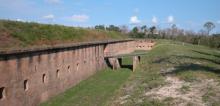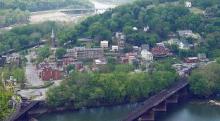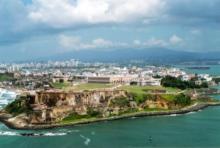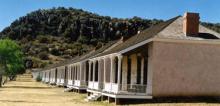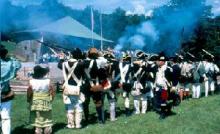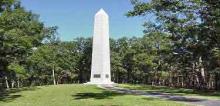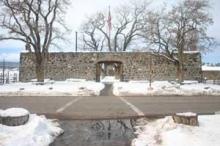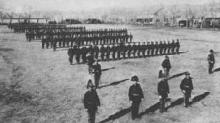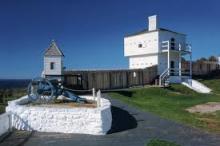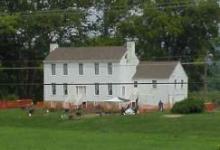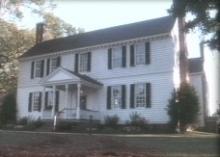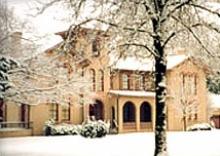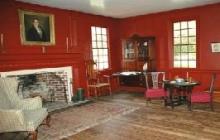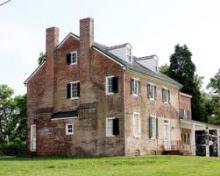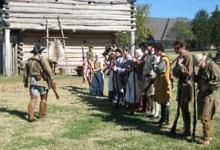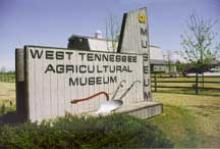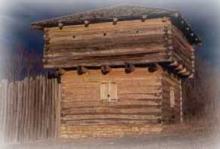Lexington Downtown Commercial District

This district was vital in the early years of Lexington's history and again during the post-war boom of the 1950s. There are many architectural styles represented in this district including Victorian, Federal, Art Deco, Beaux Arts, and Richardsonian Romanesque. The district contains several early, high-rise office buildings. The earliest of these was the American Bank Building at the northeast corner of Upper and West Short streets. Originally five stories when it was built around 1900, two stories were added by 1905 and it became the tallest building in Lexington. At the easternmost edge of this district on East Main Street stood the Ben Snyder Shopping District. Most of the buildings in this block have been demolished to make way for the new Fayette County Courthouse but three buildings remain; Embry's Department Store Building, the Lowenthal Building, and the Lexington Laundry Company, all excellent examples of early 20th-century architecture. The Laundry Company, built around 1929, is possibly the best example of Art-Deco architecture in Lexington. The façade is composed of wheat-toned glazed tile highlighted by stylized floral patterns. Plans are proposed to incorporate these three buildings into an art center for the city.
The Lexington-Fayette County Courthouse is also located within the Downtown Commercial District. During Lexington's earliest days, the area adjacent to the courthouse was known as Cheapside and served as an important trading center for agricultural goods and horses. "Court days" were held in Cheapside on the second Monday of each month for many years. These "Court days" provided time for socializing as well as business activities. Five courthouses have stood on this site and the present courthouse was built in 1898. It is an excellent example of Richardsonian Romanesque architecture. Few changes have been made to the exterior while minor changes, due to modernization, have been made on the interior. On the courthouse lawn are statues of Vice President John Cabell Breckinridge and General John Hunt Morgan, both natives of Lexington. Although Lexington has become suburbanized in recent years and most of the commercial business done in Lexington has moved to the outer fringes of the city, the Downtown Commercial District is slowly making a comeback and continues to regain the prominence it once held in the city.

